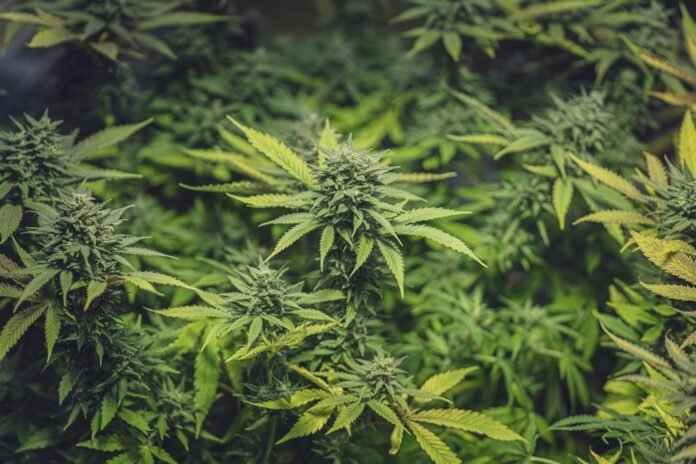
By Dr David R. Katerere, Dr Ntamo T. Lechaba and Dr Kumbirayi I. Mateva
In early 2025, South Africa’s Minister of Health issued a government notice banning the sale, production, and import of food products containing cannabis, including hemp seed oil and flour. The ban was based on the 1972 Foodstuffs, Cosmetics and Disinfectants Act. After public backlash and threats of legal action, the notice was withdrawn for further consultation. While widely understood as a ban on “cannabis edibles”, the incident highlights deeper inconsistencies in South Africa’s cannabis and hemp laws.
Rather than being a setback, the controversy offers an opportunity to re-evaluate and improve how cannabis and hemp are regulated in the country. This moment also invites us to reimagine cannabis and hemp not simply as controlled substances, but as tools for rural industrialisation, nutrition, and sustainable economic development, particularly in underserved provinces.
Cannabis law in South Africa
The South African cannabis policy landscape has been shaped by its colonial past and the restrictive legal frameworks of the apartheid era, where cannabis was criminalised and associated with punitive enforcement, particularly against black communities. The path towards reform began in the 2010s, influenced by growing international acceptance of cannabis regulation, public health debates, and robust domestic activism advocating for legal clarity and economic opportunity.
A landmark moment came in 2018, when the Constitutional Court ruled that the criminalisation of private cannabis use violated constitutional rights to privacy, effectively decriminalising personal possession and cultivation. The Court directed Parliament to enact new legislation to regulate cannabis use within a defined legal framework, which allows personal use but limits commercial trade.
In response, the government introduced the Cannabis for Private Purposes Act (2024), which permits adults to grow and use cannabis privately but maintains strict limitations on commercial trade, sale and distribution. In a parallel development, hemp (defined as a cannabis variety with very low tetrahydrocannabinol (THC), the psychoactive compound) was administratively reclassified under the Department of Agriculture, Land Reform and Rural Development in 2021, signalling recognition of its industrial and economic value.
Despite these reforms, implementation has been fragmented. Enforcement remains inconsistent, and a growing number of cannabis dispensaries now operate in legal grey zones, selling edibles, oils, and smokable products without adequate regulation, safety testing, or consumer protection standards. The absence of a centralised regulatory authority has exacerbated this ambiguity, with overlapping and sometimes contradictory mandates between the Departments of Health, Agriculture, and Trade impeding coherent policy execution and creating uncertainty for farmers, entrepreneurs, and investors.
Why the industry needs reform
Despite the decriminalisation of private cannabis use, South Africa still lacks a clear and coordinated approach to commercialisation. This creates confusion and undermines opportunities for economic development. Investors face regulatory uncertainty, and small-scale farmers are locked out of the formal market due to complex licensing, testing, and labelling requirements.
Here are six practical steps to improve the system:
1. Clarify the legal difference between hemp and cannabis
Hemp should be clearly recognised as a separate category from cannabis, especially in food regulation. Hemp seeds are highly nutritious and could help reduce malnutrition in South Africa, especially among children. Globally, hemp seed is recognised as a functional food rich in protein, omega-3 and -6 fatty acids, magnesium, and dietary fibre – attributes that align with national health promotion strategies. Including hemp in food-based dietary guidelines could support school feeding programmes and rural nutrition interventions. Current rules fail to reflect this potential and inadvertently conflate a low-risk crop with high-THC substances.
2. Enforce existing laws, don’t just add new ones
Cannabis is already regulated under several laws. However, poor enforcement has allowed a black market to flourish. Strengthening oversight – rather than introducing more restrictions – would protect consumers and build trust. For example, cannabinoid content in products should be monitored through accredited laboratories, and enforcement should be risk-based – targeting high-THC and synthetic cannabinoid products that pose actual health threats, rather than low-risk hemp derivatives.
3. Support hemp farming for economic and social development
Unlike medical cannabis (which requires expensive infrastructure), hemp farming is accessible to small farmers. It can be used to make food, clothes, biofuels, and even housing materials like hempcrete. Projects in the Eastern Cape and Malawi show that hemp can improve soil health, nutrition, and rural livelihoods. Incorporating hemp into national agro-industrial strategies could stimulate inclusive economic growth, particularly in provinces like Limpopo, KwaZulu-Natal, and the Eastern Cape. Government support should include access to certified seed, farmer training, and public-private partnerships to build local processing capacity.
4. Create a centralised cannabis regulatory authority
At the moment, cannabis regulation is divided between the departments of Health, Agriculture, and Trade in addition to the medicine regulator and the police. A single, well-organised agency could streamline licensing, production, sale and exports. This would attract investors and reduce policy uncertainty – as seen in countries like Malawi and more, recently, Botswana. Such an agency should be multi-sectoral in structure, including public health experts, agronomists, smallholder farmer associations, indigenous knowledge holders, and trade policy specialists to ensure inclusive and science-based governance. It should also establish a unified national register for hemp and cannabis operators to improve traceability and compliance.
5. Raise the THC limit for hemp
Many countries allow hemp to contain up to 1% THC. South Africa’s current limit (0.3% in raw hemp and 0.0075% in processed goods) is unusually strict, especially given the natural THC increases in tropical climates. Raising the limit to 1–2% could help farmers stay compliant while still ensuring public safety. Scientific reviews by the European Food Safety Authority (EFSA) and World Health Organisation (WHO) confirm that hemp with ≤1% THC has no psychoactive effects and poses no known health risks, making such reforms both evidence-based and globally consistent.
6. Set clear limits on cannabinoids in food
To ensure safety, CBD in food should be capped at 20 mg per serving and 600 mg per package. THC should be almost undetectable in any food product sold commercially. In addition, all cannabis-infused foods should carry clear labelling on cannabinoid concentrations, batch numbers, allergen disclosures, and expiry dates. These standards – mirroring EU Novel Food Regulations – will support consumer safety while enabling market development for low-risk edible products such as hemp seed bars, oils, and beverages.
Conclusion
The recent attempt to ban cannabis in food products may have been poorly handled, but it highlights the need for reform. South Africa has the potential to build a fair, inclusive, and economically powerful cannabis and hemp industry. With clearer laws, better enforcement, and support for small farmers, the country can lead in this fast-growing sector.
_______________________________________________________________________________________
David R. Katerere (PhD) – Tshwane University of Technology, TUT/CSIR Cannabis and Hemp Research Hub, South Africa; Ntamo T. Lechaba (PhD) – Tshwane University of Technology, Pharmaceutical and Biotech Advancement in Africa (PBAA), South Africa; Kumbirayi I. Mateva (PhD) – Kutsaga Research Institute, Zimbabwe. The authors thank the Federation of Industrial Hemp Organizations (FIHO) for their contributions.
The views expressed in this opinion piece are those of the authors, who are not employed by Health-e News. Health-e News is committed to presenting diverse perspectives to enrich public discourse on health-related issues.







